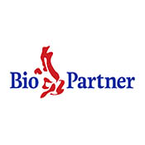Sessions & Tracks
Track 01: Probiotics
Probiotics are live microorganisms, primarily beneficial bacteria and yeast, that provide health benefits when consumed in adequate amounts. They help maintain a balanced gut microbiome, supporting digestion, immunity, and overall well-being. Common probiotic strains include Lactobacillus, Bifidobacterium, and Saccharomyces boulardii, each offering unique health benefits. Aid in digestion, reduce bloating, and prevent diarrhea. Strengthen the immune system by promoting beneficial gut bacteria. Reduce the risk of urinary tract infections, yeast infections, and gut-related illnesses. Help restore gut balance after antibiotic use. While probiotics offer numerous health benefits, they may also have some drawbacks. Some individuals experience mild digestive discomfort, such as bloating, gas, or diarrhea, especially when first introducing probiotics into their diet. In rare cases, people with weakened immune systems or underlying health conditions may be at risk of infections from certain probiotic strains.ome probiotic products may also contain allergens like dairy or soy, which could cause adverse reactions in sensitive individuals.
Track 02: Strains of Probiotics
Probiotic strains refer to specific types of beneficial bacteria or yeast that contribute to health by supporting digestion, immunity, and overall well-being. Each strain has distinct properties and functions, making them valuable for different health applications. These microorganisms primarily belong to the genera Lactobacillus, Bifidobacterium, Saccharomyces, Streptococcus, and Bacillus. Lactobacillus is one of the most well-researched genera of probiotics, found in the human gut, fermented foods, and probiotic supplements. These bacteria produce lactic acid, which helps maintain gut health by lowering pH and inhibiting harmful microbes. Bifidobacterium is another dominant genus in the gut, particularly in the colon, where it plays a critical role in digestion and immune function. It is one of the first bacterial species to colonize the intestines in infants. Unlike bacterial probiotics, Saccharomyces boulardii is a yeast probiotic that provides unique health benefits. It is resistant to antibiotics and effectively prevents diarrhea and gut infections. Streptococcus probiotic strain is widely used in dairy fermentation and contributes to gut and digestive health. Bacillus probiotics are spore-forming bacteria, meaning they are highly resistant to harsh conditions like stomach acid and high temperatures. Incorporating a diverse range of probiotics in the diet helps support digestion, enhance immunity, and promote overall well-being.
Track 03: Probiotic Nutrition
Probiotic nutrition refers to the consumption of foods and supplements rich in beneficial microorganisms that promote gut health, digestion, and overall well-being. Probiotics are primarily found in fermented foods such as yogurt, kefir, sauerkraut, kimchi, miso, tempeh, natto, and pickles, as well as in dietary supplements and fortified foods like probiotic-enriched dairy and plant-based beverages. These live microorganisms, primarily from the Lactobacillus and Bifidobacterium genera, help maintain a balanced gut microbiome, which is essential for proper digestion, immune function, and metabolic health. Probiotic nutrition plays a crucial role in enhancing nutrient absorption by improving the breakdown of complex carbohydrates, proteins, and fats. Certain probiotics assist in the production of essential vitamins such as B vitamins and vitamin K, which contribute to energy production, brain function, and blood clotting. Additionally, probiotics help improve lactose digestion, making dairy products more tolerable for individuals with lactose intolerance.
Track 04: Artificial Intelligence & Probiotics Research
The integration of Artificial Intelligence in probiotics research is transforming the way scientists study gut microbiota, develop probiotic formulations, and personalize probiotic therapies. AI technologies, including machine learning, big data analytics, and bioinformatics, are enabling researchers to analyze vast amounts of microbiome data, identify beneficial probiotic strains, and predict their effects on human health with greater precision. This advancement is accelerating the discovery of novel probiotic strains and optimizing their applications for various health conditions, including digestive disorders, metabolic diseases, immune system regulation, and mental health support. AI also plays a crucial role in probiotic strain selection and development. AI is revolutionizing probiotics research by enhancing microbiome analysis, enabling personalized probiotic therapies, accelerating strain development, and improving clinical trial efficiency. As AI continues to evolve, its role in probiotic science will expand, leading to more precise, effective, and innovative probiotic solutions for human and animal health. The synergy between AI and probiotics is paving the way for a new era of precision nutrition and microbiome-based medicine.
Track 05: Biological Effects of Probiotics
Probiotics exert a wide range of biological effects that contribute to overall health by maintaining gut microbiome balance and enhancing physiological functions. These beneficial microorganisms, including Lactobacillus, Bifidobacterium, Saccharomyces, and Bacillus species, play a crucial role in digestion, immunity, metabolism, mental health, and disease prevention. They also aid in the production of digestive enzymes and vitamins, such as B vitamins and vitamin K, which support energy metabolism and cognitive function. Probiotics have a significant impact on the immune system, enhancing immune cell activity and reducing inflammation. They stimulate macrophages, dendritic cells, and natural killer (NK) cells to improve the body's defense against infections while also regulating inflammatory responses to prevent autoimmune diseases and allergies. Certain strains, such as Lactobacillus rhamnosus and Bifidobacterium breve, have been shown to enhance vaccine efficacy and reduce the severity of respiratory infections. In addition to immune support, probiotics contribute to metabolic and cardiovascular health by influencing blood sugar regulation, improving insulin sensitivity, and lowering cholesterol levels. Specific strains, such as Lactobacillus plantarum and Bifidobacterium longum, help break down bile acids and reduce cholesterol absorption, thereby promoting heart health.
Track 06: Probiotic Microorganisms
Probiotic microorganisms are live beneficial bacteria and yeasts that provide health benefits when consumed in adequate amounts. These microorganisms naturally exist in the human gut and are also found in fermented foods, dietary supplements, and probiotic-enriched products. The most well-known probiotic microorganisms belong to the Lactobacillus, Bifidobacterium, Saccharomyces, Streptococcus, and Bacillus genera. Each type plays a distinct role in maintaining gut health, enhancing digestion, supporting immunity, and preventing diseases. Incorporating probiotic microorganisms into the diet through fermented foods or supplements can significantly improve digestive health, immune function, and overall well-being. As research continues to explore their potential, probiotic microorganisms are increasingly being utilized in functional foods, personalized medicine, and therapeutic applications for various health conditions.
Track 07: Mechanism of Probiotics
Probiotics exert their beneficial effects on health through various biological mechanisms that support digestion, enhance immune function, and maintain gut microbiome balance. These mechanisms include gut microbiota modulation, competitive exclusion of pathogens, enhancement of gut barrier function, immune system regulation, and production of bioactive compounds. By interacting with the host’s intestinal environment, probiotics help improve gastrointestinal health, prevent infections, and influence metabolic and neurological functions. The beneficial effects of probiotics result from their ability to restore gut microbiome balance, prevent infections, enhance intestinal barrier function, regulate immune responses, and produce health-promoting compounds. These mechanisms contribute to the prevention and management of digestive disorders, metabolic diseases, immune-related conditions, and mental health issues. As research advances, probiotics continue to be recognized as a valuable tool in gut health, personalized medicine, and functional food innovations.
Track 08: Probiotics in Metabolic Disorders
Metabolic disorders, such as obesity, type 2 diabetes, metabolic syndrome, and dyslipidemia, are increasingly common health concerns linked to imbalances in gut microbiota, inflammation, and poor metabolic regulation. Probiotics have emerged as a promising approach to managing these disorders by modulating gut microbiota, improving insulin sensitivity, reducing inflammation, and supporting lipid metabolism. Beneficial bacterial strains, including Lactobacillus, Bifidobacterium, and Bacillus species, help regulate metabolic functions and prevent complications associated with metabolic disorders. As research continues, probiotics may become an integral part of personalized nutrition and therapeutic strategies for preventing and treating metabolic disorders. Including probiotic rich foods or supplements in a balanced diet and healthy lifestyle can contribute to better metabolic health and overall well-being.
Track 09: Functional Food
Functional foods are foods that provide health benefits beyond basic nutrition, offering additional physiological advantages that help prevent diseases and promote overall well-being. These foods contain bioactive compounds, probiotics, prebiotics, vitamins, minerals, and antioxidants, which contribute to improved digestion, enhanced immunity, and reduced risk of chronic diseases like heart disease, diabetes, and obesity. Functional foods can be natural or fortified, with the latter being enriched with specific nutrients to enhance their health benefits. Functional foods are an essential part of a balanced diet, offering nutritional and therapeutic benefits that go beyond basic sustenance. Whether consumed naturally or in fortified forms, these foods contribute to better digestion, heart health, immune function, and overall well-being. As scientific research advances, functional foods are becoming an integral part of personalized nutrition, preventive healthcare, and disease management.
Track 10: Baby Food
Baby food is specially formulated to meet the nutritional needs of infants and toddlers, supporting their growth, brain development, and immune function. During the first years of life, a baby’s diet plays a crucial role in shaping overall health, digestive function, and long-term well-being. Baby food can be breast milk, formula, pureed foods, cereals, or fortified options designed to provide essential nutrients such as proteins, healthy fats, vitamins, minerals, and probiotics. Baby food is a critical part of early nutrition, supporting growth, brain development, and digestive health. Choosing nutrient-rich, organic, and probiotic-enriched foods helps lay the foundation for a lifetime of good health. As research on infant gut health and probiotics advances, baby food products are becoming increasingly tailored to support strong immunity, better digestion, and overall well-being.
Track 11: Probiotic Industrial Products
Probiotic industrial products are commercially manufactured products that contain live beneficial microorganisms, primarily used to improve gut health immunity, and overall well-being. These products span across multiple industries, including food and beverages, pharmaceuticals, animal feed, cosmetics, and agriculture. The growing demand for probiotics has led to advancements in fermentation technology, microencapsulation, and probiotic stabilization techniques, ensuring the survival and effectiveness of probiotic strains in various industrial applications. Probiotic industrial products play a crucial role in human health, animal nutrition, skincare, and agriculture. Advances in probiotic technology continue to expand their applications, making them a vital part of modern health and wellness industries. As research progresses, probiotics are expected to revolutionize multiple sectors by promoting healthier living, disease prevention, and sustainable practices.
Track 12: Probiotics and Digestive Health
Probiotics play a vital role in maintaining digestive health by supporting a balanced gut microbiome, improving digestion, and preventing various gastrointestinal disorders. The human gut contains trillions of bacteria, both beneficial and harmful, and an imbalance in this microbial ecosystem can lead to issues such as constipation, diarrhea, bloating, and irritable bowel syndrome. Probiotics, including strains of Lactobacillus, Bifidobacterium, and Saccharomyces, help restore gut balance, enhance nutrient absorption, and strengthen the intestinal barrier. Probiotics are essential for maintaining digestive health, preventing gastrointestinal disorders, enhancing nutrient absorption, and reducing gut inflammation. Regular consumption of probiotic-rich foods or supplements can significantly improve gut function, immune response, and overall well-being. As research on probiotics and digestive health continues, they are becoming an increasingly recognized tool in digestive care, preventive medicine, and gut microbiome therapy.
Track 13: Probiotics and Mental Health
Probiotics have a profound impact on mental health, stress regulation, mood stabilization, and cognitive function. By supporting the gut-brain axis, probiotics help alleviate symptoms of anxiety, depression, and stress, while promoting overall mental well-being. As research progresses, probiotics are becoming an essential component of mental health care and holistic approaches to brain health. Probiotics play a crucial role in mental health by influencing the gut-brain axis, a complex communication network between the gut microbiome and the brain. Emerging research shows that gut bacteria can affect mood, stress response, anxiety, depression, and cognitive function through the production of neurotransmitters, regulation of inflammation, and modulation of the nervous system. Probiotic strains, often called psychobiotics, such as Lactobacillus and Bifidobacterium species, have been found to improve mental well-being by supporting a balanced gut microbiome.
Track 14: Probiotics in Women’s Health
Probiotics, often referred to as "good bacteria," play a crucial role in maintaining overall health, particularly for women. These beneficial microorganisms contribute to digestive health, immune function, and, importantly, vaginal and urinary tract health. By promoting a balanced microbiome, probiotics help prevent infections, support hormonal balance, and improve overall well-being.The vaginal microbiome is primarily composed of Lactobacillus species, which help maintain an acidic pH and prevent the overgrowth of harmful bacteria. Probiotics reduce the risk of bacterial vaginosis and yeast infections, restore vaginal flora after antibiotic treatments.A healthy gut microbiome contributes to proper digestion and absorption of nutrients. The gut and hormones are closely linked, influencing mood, metabolism, and reproductive health. During pregnancy, maintaining a healthy microbiome benefits both the mother and baby. Probiotics play an essential role in women's health by supporting vaginal, urinary, digestive, and hormonal balance. Probiotics play an essential role in women's health by supporting vaginal, urinary, digestive, and hormonal balance.
Track 15: Probiotics in Sports and Fitness
Athletes benefit from probiotics through enhanced gut health, improved nutrient absorption, and reduced inflammation. Strenuous exercise can cause gastrointestinal distress, increasing gut permeability (leaky gut) and inflammation. Probiotics help strengthen the intestinal barrier, reducing gut-related discomfort and improving digestion. A healthy gut microbiota improves the breakdown and absorption of essential nutrients, including proteins, vitamins, and minerals necessary for muscle function and endurance. Exercise-induced muscle damage leads to inflammation and soreness. Probiotics help reduce oxidative stress and inflammation, accelerating post-workout recovery. Probiotic strains like Lactobacillus plantarum aid in maintaining hydration levels by influencing electrolyte absorption and gut water balance. The gut-brain axis links gut microbiota to mental health. Probiotics help regulate mood, reduce stress-related inflammation, and enhance cognitive function, supporting athletic performance under pressure. Tailoring probiotic regimens based on gut microbiome analysis to maximize performance. Probiotics are a valuable tool for enhancing athletic performance, supporting gut health, reducing inflammation, improving nutrient absorption, and strengthening mental resilience. Regular consumption of probiotic-rich foods or supplements can help athletes recover faster, optimize digestion, boost immunity, and maintain peak performance.
Track 16: Nutraceuticals and Functional Foods
Nutraceuticals and functional foods bridge the gap between nutrition and medicine, offering health benefits beyond basic dietary needs. Nutraceuticals include bioactive compounds such as vitamins, polyphenols, probiotics, and omega-3 fatty acids, which support overall well-being and disease prevention. Functional foods, on the other hand, are fortified or naturally rich in health-promoting ingredients. Examples include probiotic-enriched dairy products, fiber-fortified cereals, and antioxidant-rich beverages. These foods help manage chronic conditions like cardiovascular diseases, diabetes, and metabolic disorders by enhancing gut microbiota composition, reducing inflammation, and improving immune function. Advancements in food technology, such as encapsulation techniques and fermentation processes, have improved the stability and bioavailability of nutraceutical ingredients. The growing consumer demand for personalized nutrition and sustainable food options continues to drive innovations in this field. Nutraceuticals and functional foods are shaping the future of preventive healthcare, personalized nutrition, and sustainable wellness. By integrating probiotics, antioxidants, fiber, and bioactive compounds into daily diets, individuals can improve gut health, immune resilience, and metabolic function, reducing the risk of chronic diseases. As scientific research advances, innovations in food technology and biotechnology will continue to drive the evolution of functional nutrition, making health-enhancing foods more accessible and effective for global consumers.
Track 17: Prebiotics and Gut Health
Prebiotics are non-digestible dietary fibers that selectively stimulate the growth and activity of beneficial gut bacteria, improving gut health and overall wellness. Common prebiotics include inulin, fructooligosaccharides, galactooligosaccharides, and resistant starch. Dietary sources of prebiotics include garlic, onions, bananas, chicory root, whole grains, and legumes. Emerging research explores synbiotic formulations—combining probiotics and prebiotics—to maximize gut health benefits. Beneficial bacteria metabolize prebiotics into SCFAs like butyrate, acetate, and propionate, which support intestinal health. Prebiotics enhance the production of anti-inflammatory cytokines and help regulate immune responses. Prebiotics enhance the production of anti-inflammatory cytokines and help regulate immune responses. Prebiotics are essential for nourishing beneficial gut bacteria, producing SCFAs, enhancing immune function, and supporting digestive health. Incorporating prebiotic-rich foods into daily diets can help maintain a healthy gut microbiome, reduce inflammation, and improve metabolic function. As research continues, synbiotic approaches are becoming a promising strategy for gut health optimization and disease prevention.
Track 18: Postbiotics and Their Health Benefits
Postbiotics are bioactive compounds produced when probiotics ferment prebiotic fibers in the gut. Unlike probiotics, which are live microorganisms, postbiotics include metabolites, enzymes, peptides, short-chain fatty acids, polysaccharides, and cell wall components that provide health benefits without requiring live bacteria. These compounds support gut health, immune function, and metabolic balance, making them a promising area in microbiome research and functional nutrition. ostbiotics are a powerful byproduct of gut microbiota activity, providing benefits for gut health, immune function, metabolism, and inflammation control. As research progresses, postbiotic-enriched foods and supplements are emerging as a promising alternative to probiotics, offering more stability, effectiveness, and targeted health benefits in microbiome-based therapies.
Track 19: Regulatory Affairs & Safety of Probiotics
The regulation and safety of probiotics are critical to ensuring their efficacy, purity, and consumer protection. As probiotics gain popularity in food, supplements, pharmaceuticals, and functional beverages, global regulatory bodies have established guidelines for quality control, health claims, and safety assessment. Regulatory frameworks vary by region, with authorities such as the U.S. Food and Drug Administration, European Food Safety Authority, and World Health Organization overseeing probiotic safety and marketing claims. Probiotics cannot be marketed as drugs unless approved through clinical trials. Health claims such as “supports digestive health” must be scientifically backed. Labels must clearly state the probiotic strain, colony-forming units, and recommended dosage. WHO/FAO provides scientific recommendations on probiotic strain characterization, safety assessment, and labeling. Regulatory affairs ensure the safety, quality, and effectiveness of probiotics by enforcing strain-specific testing, accurate labeling, and scientific validation of health claims. As probiotic research advances, harmonized global regulations will be essential for maintaining consumer trust and product reliability in the growing probiotic industry.
Track 20: Applications of Probiotics in Health and Diseases
Probiotics have vast applications in health maintenance and disease prevention, supporting the gut, metabolism, immune system, mental health, skin, and overall well-being. Probiotics play a crucial role in maintaining overall health and preventing or managing various diseases by modulating gut microbiota, strengthening the immune system, reducing inflammation, and improving metabolic functions. They are widely used in digestive health, where strains like Lactobacillus rhamnosus and Bifidobacterium infantis help alleviate irritable bowel syndrome, inflammatory bowel disease, diarrhea, and constipation. In immune system support, probiotics enhance immune responses, prevent allergies, and reduce autoimmune inflammation, with strains like Lactobacillus casei being particularly effective. Probiotics also benefit metabolic health, aiding in weight management, blood sugar regulation, and cholesterol reduction, with Lactobacillus gasseri helping in fat metabolism. The gut-brain axis links probiotics to mental health improvements, as Lactobacillus helveticus and Bifidobacterium longum help reduce stress, anxiety, and depression by influencing neurotransmitters. In women’s health, probiotics such as Lactobacillus crispatus support vaginal and urinary tract health, preventing infections like bacterial vaginosis and urinary tract infections. Probiotics contribute to skin health, reducing conditions like acne, eczema, and rosacea, and promoting anti-aging effects by enhancing collagen production. Athletes benefit from probiotics through improved muscle recovery, hydration, and gut resilience, with Lactobacillus plantarum helping prevent exercise-induced gut distress.



























